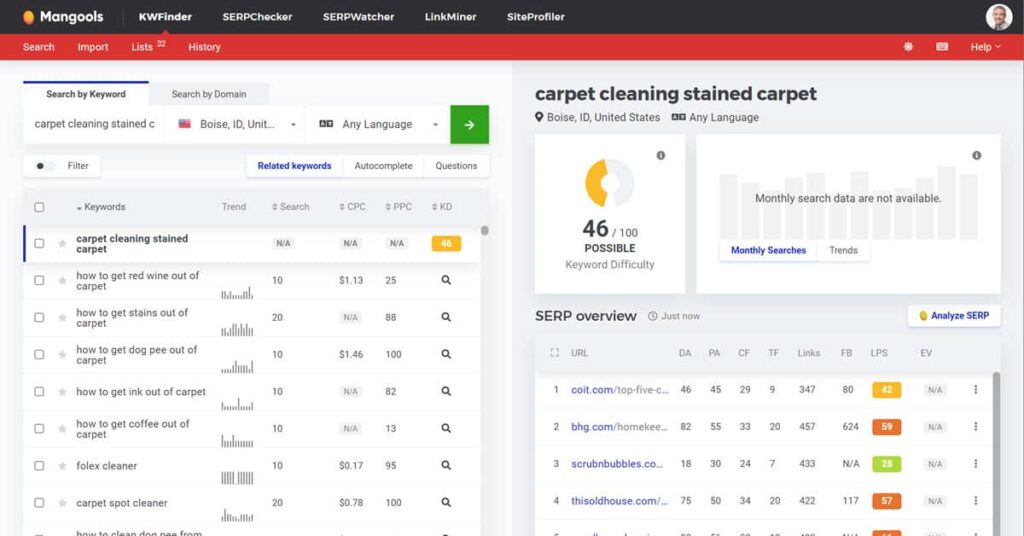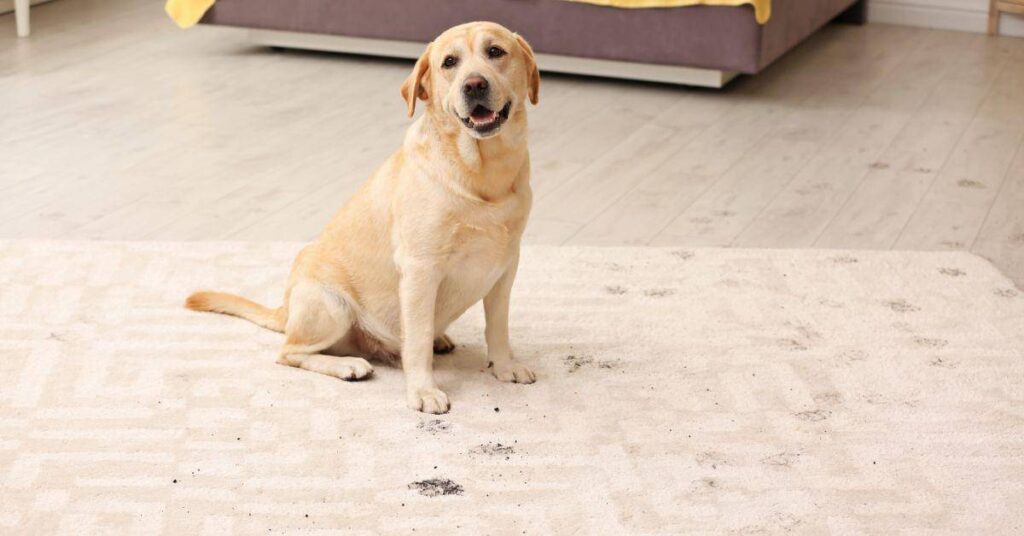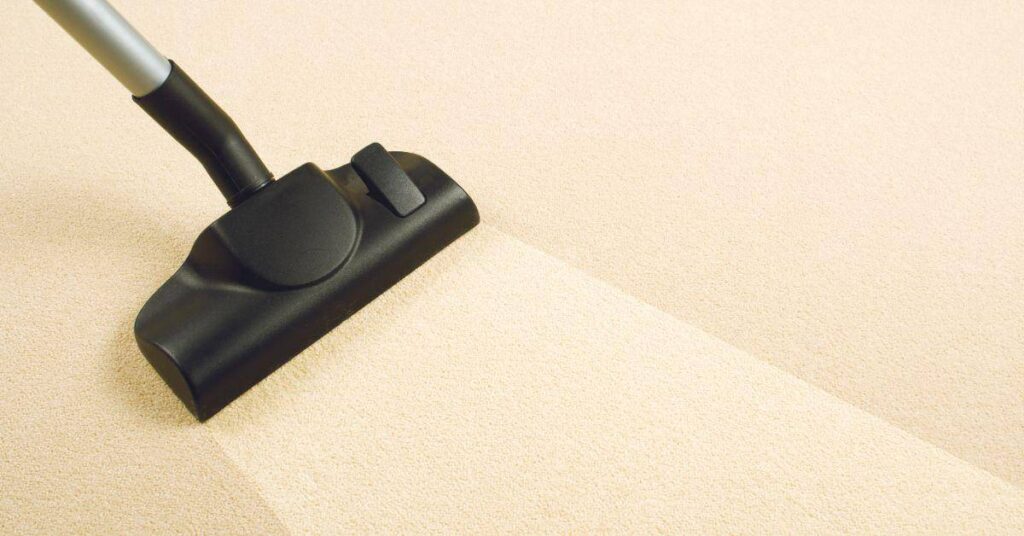What to Consider Before Buying a Business or Becoming a Franchisee
Buying a carpet cleaning business is a smart investment for entrepreneurs. Over 48% of buildings have carpet flooring, so you’ll have plenty of customers to service. Since you already have a business purpose and potential customers, starting a carpet cleaning business is easy.
Start-up costs are low because there’s little equipment necessary. Buying quality carpet cleaning equipment can save you money regarding labor.
If you want to lower your start-up costs even more, there are numerous ways to enter the market. You can purchase a successful franchise like Chem-Dry or an independent business with customers built-in.
It’s also worth considering offering environmentally friendly cleaning processes to increase profits while meeting consumer demand for green products. Owning your own business is highly rewarding since you’re in charge while making money doing something you enjoy.
What To Consider When Starting a Carpet Cleaning Business
There are some key considerations before buying a carpet cleaning business.
Business Goals
Set goals for your business. Consider if you’re going to service residential properties, commercial venues, or both. As an example, specializing in commercial cleaning for office buildings can result in recurring work that you can depend on – but you might not receive as high a rate per job as you might when servicing homeowners.
Calculate how much you’ll charge for an hour of service and determine how many jobs you need each week to stay afloat.
Remember that you can take on more jobs if you have a team of employees, but you’ll have to pay them for their time. This overview can help you set a loose budget for your business and understand what it will take to profit each month.
Resources Needed
Every business needs resources. For a carpet cleaning company, you’ll want to consider the following:
- Equipment
- Budget
- Employees
- Marketing Plan
Equipment
Standard equipment includes carpet cleaning machines like vacuums, portable carpet extractors, wands, hoses, stair tools, carpet recycling bags, and detergents. If you’re servicing large spaces, you can invest in rotary extractors and air movers to speed up the cleaning and drying.
In addition to detergents, you’ll want other supplies like pre-sprays, rinses, deodorizers, Scotchgard, and solvents. Provide personal protective equipment (PPE) for all cleaners working with chemicals.
If startup costs are a concern, you can always rent equipment as you’re getting your business off the ground.
Carpet Cleaner Rental Information From Home Depot
Budget
There are many aspects to a business budget. You should consider start-up costs to establish your brand, buy equipment, and market yourself to customers. If you plan to have a team, you need a budget for employee paychecks. You need to have cash on hand for unexpected expenses and estimate monthly costs for equipment and supplies.
Always have money set aside in your budget for repairs and replacements. Most industrial equipment can last for years, but you don’t want to lose customers because your tools stop working.
Employees
When you hire employees, vet them carefully since they represent your business. You want to employ loyal people who take pride in a job well done. Train your carpet cleaners on all equipment, how to wear PPE, and customer interaction. Proper training and support will ensure a positive working environment and prevent turnover.
Marketing Plan
A carpet cleaning business is necessary, but potential customers won’t know you exist if you don’t market yourself. Target specific areas, such as residential or corporate, and market directly to your ideal clients. Send mailers, discount codes, and cold-call businesses.
It’s worth investing money in a website and ensuring you’re on Google My Business. Your carpet cleaning business will pop up at the top of local searches, making you the business customers will contact first.
Franchise or Independent
Buying a franchise is a streamlined way to start a business. You’ll own the business under the umbrella of an established company, like Oxi Fresh carpet cleaning or Rug Doctor.
Cleaning franchises allow you to buy their supplies, cutting down on expenses. Many also let you use their online systems to book jobs, so you don’t have to undertake a new documentation process.
The perks of buying a franchise are many, but you will lose a bit of independence and control that you would otherwise have as an independent business owner. You must follow the parent company’s overall method. They can determine your open business hours and force you to buy their supplies and equipment. But you can delegate shifts to employees and remain relatively hands-off in running the business, so there are pros and cons to buying into a franchise.
If you decide to start your own business, you should consider the structure:
- Sole proprietorship
- Partnership
- Limited liability company (LLC)
- Corporation
A sole proprietorship is for solo entrepreneurs. It offers limited liability protection but no formal filing requirements or taxes.
Partnerships are best suited for businesses with multiple owners; they provide protection similar to LLCs but require more paperwork and filing fees.
LLCs have a more formal legal structure than sole proprietorships or partnerships while protecting personal assets against lawsuits.
Corporations offer more complex legal structures but provide greater personal asset protection requiring legal filings and higher fees.
Products and Services
There are no limits to owning a carpet cleaning business. But you’ll still want to define your services to the greatest extent possible.
Define Your Target Customer
This is a big one for a carpet cleaning business owner and helps to set the direction and marketing strategy. Do you want to service homeowners? Do you want to focus on local businesses in your area?
Carpet Cleaning Techniques
Which techniques of carpet cleaning do you want to focus on? Do you want to focus on steam cleaning, dry carpet cleaning, hot water extraction? There are many different ways to clean a carpet. Do your research and figure out what kind of actual carpet cleaning is the best fit for your small business.
Add On Services
You can expand services beyond just cleaning carpets. Do you want ot include upholstery cleaning as part of your overall services? Many carpet cleaners also offer duct cleaning services or tile and grout cleaning in addition to carpet cleaning. You’ll need to really do your research to make sure that you can achieve a good profit margin with these additional services for them to be worthwhile.
Pricing & Packages
You can offer cleaning packages to customers, such as one-time cleanings or a recurring subscription. You can sell products like carpet shampoo and deodorizers. Businesses can also sell or rent vacuums, steam cleaners, and vacuums to provide more income streams.
Competition
Do research on the carpet cleaning industry in your area. There are many established companies in the industry, plus smaller businesses or individuals who offer their services on a freelance basis. People can even rent carpet cleaning equipment from hardware stores.
It’s important to have a unique concept and marketing strategy that sets you apart from others. Your pricing model should also help customers choose your business.
Business Plan
A business plan is a strategic blueprint that outlines the goals and objectives of an organization. It helps assess market trends, identify competitors, develop marketing strategies, outline standard operational procedures, and make financial projections for the future.
Your business plan should include the company’s mission statement, an analysis of the market trends, and potential growth opportunities. Outline specifics you can offer to stand out from the competition.
The plan can include sales, discounts, and seasonal projections in the business plan. These items will help you estimate your income throughout the year to better budget your money for supplies, payroll, and profit.
It should also have an appendix with additional documents related to finances or operations that may be necessary for investors or partners to understand the company. You can show stakeholders what they can expect with their investment to make informed decisions about funding projects.
How To Buy a Carpet Cleaning Business
If you’re ready to buy a carpet cleaning business, follow these steps to streamline the process and start making a profit.
Step 1: Determine if the Business Is Right for You
If you buy a carpet cleaning franchise, you want to ensure the company’s mission aligns with your values. Other than that, you’ll have most of the structure outlined when you buy into the franchise.
For people starting their own business, you’ll want to brainstorm everything to ensure you can establish your brand and gain clients quickly.
Whether you choose a franchise or an independent business, consider if you’ll hire employees. Also, think of ideas for marketing to your ideal customers so you can hit the ground running.
Step 2: Hone Your Idea
Before starting a carpet cleaning business, check out the competition in your area. View the services they offer, their pricing levels, and their online reviews. This information will help you flesh out the concept of your business.
At this stage, you should focus on your budget. Make lists of expenses, including equipment, replenishing supplies, payroll, and taxes.
If you’re starting a business from scratch, take time to choose a name. It can be a play on words, include unique services you offer, or include your last name. Think of possible logos and branding as you brainstorm the name, as these elements greatly impact your marketing approach.
Step 3: Fund Your Carpet Cleaning Business
In step one, you estimated a budget. You have an idea of how much you’ll spend on carpet cleaning equipment, marketing, employees, and inventory. Now you need the funding to secure all these resources.
Some expenses are low, like a carpet cleaning machine. You can buy that out-of-pocket and pay yourself back when the business turns a profit. But you might need a loan for marketing, storage space, and legal fees to start the business.
Bank loans and SBA-guaranteed loans are the most common methods of securing financing for a carpet cleaning business. Government grants, friends and family, and crowdfunding are also options.
The Small Business Administration offers loans if they approve of your business plan. Government grants have certain benchmarks to meet before they distribute funds. You can also contact your bank for a loan, especially if you have a good credit score.
Look for investors to be partners or stakeholders in the business. If you take this route, create a document that outlines how much say they have in the daily operations and what their investment gives them.
Step 4: Register and License Your Business
Determine what type of business entity you want to be: sole proprietorship, partnership, LLC, or corporation. Each type has advantages and disadvantages, so research them before deciding which one is best for you.
The business type also impacts the documents and fees required for registration. You’ll encounter specific information and costs to get a license in your state or county.
Meet all legal requirements before filing any paperwork with the authorities. You may need proof that there are sufficient funds available for starting the venture. You might need a copy of your business plan and financial records.
Carpet cleaning businesses also require certifications. Possible options include:
- Carpet Cleaning Certification from the International Janitorial Cleaning Services Association
- Industry Certification from the International Sanitary Supply Association
- Carpet Cleaning Technician Certification from the Institute of Inspection Cleaning and Restoration Certification
- State-specific business licenses, permits, and certifications
Step 5: Obtain the Right Insurance Policies
Keep your team and finances secure with business insurance. You want to protect the company, your employees, and the carpets. Some insurance policies you need for your small business include:
- General liability insurance
- Workers’ compensation insurance
- Unemployment and state disability insurance for employees
- Commercial auto insurance for your company’s truck
- Property damage coverage or Business Interruption Insurance
Business insurance is a legal requirement, but it also benefits you. The policies cover any payout due to property damage, accidents in the company vehicle, and other legal claims. You won’t have to pay those fees out of pocket.
Step 6: Market Your Carpet Cleaning Business
Before you’re open for business, you need to market your company. You’ve already researched the competition, so you know what they’re doing and can offer something different.
Consider targeting a niche market by specializing in a certain aspect of your industry. You can focus on residential carpets, commercial carpets, fine rugs, or ongoing cleaning contracts. Highlight these plans in your carpet cleaning marketing materials, so clients know what they’ll get when they hire you.
You can market in many ways. Social media, website ads, and NextDoor posts will help establish your business as a local entity, which can build customer loyalty. Flyers, postcards, and newspaper ads centered around your target location also help.
If you’re a commercial carpet cleaning service, contact businesses directly. Set up meetings to explain what makes your brand stand out from the competition. Ensure customers leave reviews after service to help boost your word-of-mouth marketing.
Try every aspect of marketing and keep data about what works. You’ll see certain avenues help boost your reputation as a professional carpet cleaner.
Step 7: Manage the Daily Business
After creating your business, legally forming the company, establishing your target audience, and enacting a marketing plan, you should manage the day-to-day aspects of the carpet cleaning business.
If you have employees, you want to schedule them for the right amount of hours, ensure they have the training and PPE to complete each job, and empower them to work independently. This approach frees you up to manage the schedule from behind the scenes and guarantees the machines work properly.
You can hire out some tasks for your small business, such as payroll and marketing, especially if you factor that into your budget. Otherwise, make notes of how long each task takes you so you can streamline the work and maximize profits.





